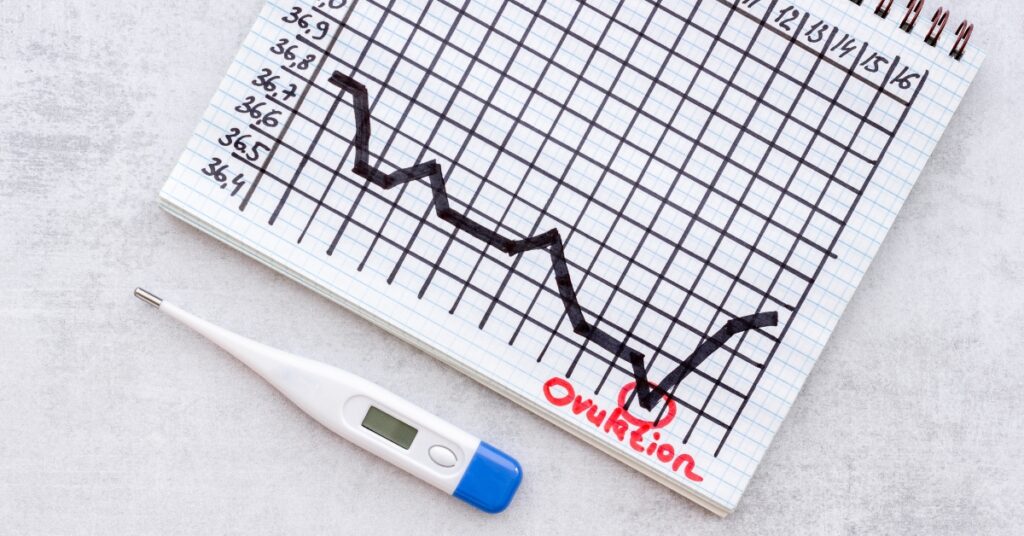Getting pregnant is often more difficult and takes longer than you expect, which can feel disheartening if it seems like all your friends are pregnant. While it’s totally normal for it to take up to a year to get pregnant, HALO Fertility and Dr. Matthew Macer share these tips for improving your chances of conceiving.
Learn to Identify Your Fertile Window
It may surprise you to learn that there are only about six days each month when you can get pregnant. And because an egg only survives for 12 to 24 hours after ovulation, if sperm isn’t available to fertilize the egg, your body will break it down and you won’t have another chance until you ovulate again.
Sperm can survive in the female reproductive tract for about five days, so the five days before ovulation, plus the day of ovulation make up your fertile window. There are several methods you can use to identify your fertile window, and all require you to predict ovulation.
Predicting Ovulation
Most women ovulate about 14 days before the start of their next cycle, with the first day of your cycle being the first day of your period. If you have a 28-day cycle, you’ll ovulate on Day 14, while you’ll ovulate on Day 16 if you have a 30-day cycle. You can chart your cycle on a calendar to learn how many days it typically lasts and which day you’re most likely to ovulate.
Another method is taking your basal body temperature with a basal thermometer every morning when you wake up. Your basal body temperature should be the same most days of the month, but it will increase slightly, by about half a degree, when you ovulate.
You can also monitor your cervical mucus throughout the month which, just before ovulation, will increase in volume, become thinner and more slippery, and have the texture of egg whites.
Finally, you can purchase over-the-counter ovulation predictor kits that measure the amount of luteinizing hormone (LH) in your urine and identify the surge that occurs 24-48 hours before you ovulate.
Have Sex Frequently
Having frequent sex may seem like a no-brainer, but when you’re trying to conceive, sex can start to feel like a chore, and you may begin to actually have less sex. Since you can’t get pregnant outside of your fertile window, it’s important to have sex frequently enough within your fertile window and the days leading up to ovulation.
Although you can only get pregnant during your fertile window, you don’t need to limit sex to that time. Focus on your relationship, have date nights, and try not to think about the outcome of having sex.
Use Fertility-Friendly Lubricant
At Halo Fertility, we’ve noticed that many couples are unaware that many types of regular lubricant can be harmful to sperm.
If you’re trying to conceive, it’s best to choose fertility-friendly lubricants, like Pre-Seed or Conceive Plus, both specifically formulated not to harm sperm.
Avoid Harmful Substances
Below are some of the environmental factors and harmful substances Dr. Macer recommends you avoid when trying to get pregnant:
- Tobacco
- Alcohol
- Recreational drugs
- More than 200 mg of caffeine per day
- Fish that isn’t low-mercury
- Heavy metals
- Chemicals, such as pesticides and PFAS
- For men, prolonged or high heat exposure to the genitals
Aim for a Healthy Weight
Because your weight is closely tied to your health and hormone levels, it has a profound impact on your fertility, and that’s true for both men and women.
If you’re overweight, achieving even a 10% reduction in your weight can help regulate ovulation and make it more likely that you will conceive. Healthy lifestyle choices are often enough to help you lose weight, but you can also talk to your doctor if you need additional help.
Eat a Fertility-Friendly Diet
Whether or not you need to lose weight, eating a fertility-friendly diet may be helpful. The food you eat impacts your blood sugar and hormones, and can have a big impact on your ability to get pregnant. Plus, it’s essential to give your body the nutrition it needs to conceive and carry a pregnancy.
Good dietary choices include complex carbohydrates, lean protein, vegetables, fruits, moderate amounts of dairy, and healthy fats. The Mediterranean diet is an excellent choice for boosting your overall health and fertility.
Get a Moderate Amount of Exercise
Getting the right amount of exercise can really help your efforts to get pregnant. Too much exercise can prevent you from ovulating, and has been linked to lower sperm counts in men. Too little exercise may cause you to gain weight and interfere with ovulation.
Moderate-intensity exercise for about 30 minutes most days of the week is a healthy medium for most people. Talk to your doctor about the right amount of exercise for you.
Know When to Seek Help
While all these tips are helpful no matter where you are on your fertility journey, it’s important to know when to seek help from a fertility specialist. If you’ve been trying to conceive for 12 months (6 months if you’re over 35), have experienced two or more miscarriages, or have a known medical condition that may impact your ability to conceive and carry a pregnancy to term, schedule a consult with Dr. Macer and the Halo Fertility team in Rolling Hills, CA.







